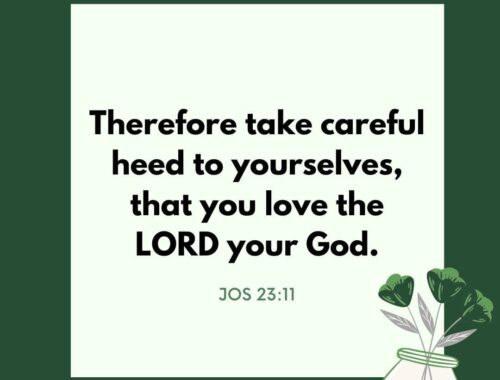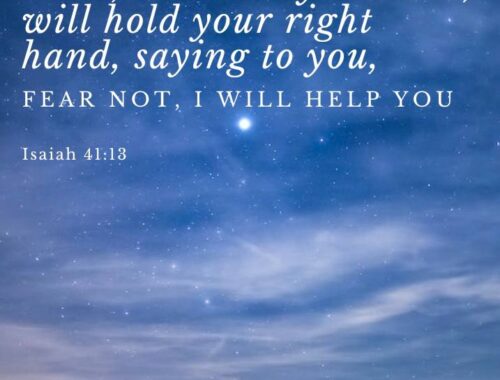Isaiah Chapter 4

Isaiah 4 is a continuation of the previous chapters. It begins with the phrase:
“And in that day…”.
This is a phrase that is repeated across chapter 2 and chapter 3 of Isaiah. In Isa 2:12, it is declared:
“For the day of the Lord of hosts, Shall come upon everything proud and lofty…”
This day is referenced further in Isaiah 2:20, as well as in Isaiah 3:18, and here in Isaiah 4:1. We know from reading Chapters 2 and 3 that this “day of the Lord” is a day of judgment. Judgment is declared upon man’s pride (Isa 2:12 – 17), and on Judah and Jerusalem (Isa 3). Thus, when we read about that day in Isa 4:1, this should also be referring to that day of the Lord.
What happens on this day? Seven women shall take hold of one man, saying:
“We will eat our own food and wear our own apparel; Only let us be called by your name, to take away our reproach.”
What does this mean? In the old testament, the reproach of a women, is to be unmarried and childless. That is why in Genesis 30:23, Rachel says that God has taken away her reproach after she bears a son, Joseph. One way to read Isaiah 4:1, is that when the day of the Lord comes, many men will be killed, leaving many women with no men for marriage; and therefore potentially unmarried and childless.
That is why seven women will take hold of one man, saying we will eat our own food and wear our own apparel (meaning: we will provide for ourselves), only let us be called by your name (meaning: let us be married to you and bear children), to take away our reproach (meaning: so that we will not be ashamed).”
Isaiah 4:1 seems to be a description of the pitiful state that Judah and Jerusalem will be left in. The men will be decimated, leaving few able men. This also hints at the destruction of the physical sovereign states of Judah and Israel, because at that time armies of fighting men were what was needed to uphold the sovereignty of the state.
So “In that day” in chapters 2 and 3 of Isaiah and in 4:1 of Isaiah seem to refer to an imminent day of physical destruction for Jerusalem and Judah.
Would the phrase “in that day” in Isaiah 4:2 refer to the same day? Personally, I don’t think so. Although Isaiah 4:2 begins with “In that day”. This time it is different. The tone and message for the rest of the chapter turns positive.
The focus now is on those of Israel who have escaped. He who is left in Zion and remains in Jerusalem will be called holy. When does the remnant become holy? It is when the Lord has washed away the filth of the daughters of Zion, and purged the blood of Jerusalem from her midst, by the spirit of judgment and by the spirit of burning.
It seems that this “Spirit” refers to Jesus. Jesus is the Spirit of judgment because Jesus will judge the world in the future (see Acts 17:31, Matthew 25:31-46); and Jesus is the Spirit of burning because He is the one who baptizes with fire (Matthew 3:11), and it is by Jesus that the filth of the daughters of Zion are washed away (in baptism). We also know that the Branch of the Lord in verse 2 refers to Jesus (see Zechariah 3:8, 6:12, Jeremiah 23:5, 33:15).
From this, we know that when Isaiah 4:2 says “In that day”. It is no longer talking about a day of imminent judgment for Jerusalem and Judah. Rather it is about the time when Jesus comes again to establish His new kingdom, on the mountain of the Lord (Isaiah 2:3).
Isaiah 4:5 – 6 is a callback to a scene from the Exodus, where God was with the Israelites by a pillar of cloud in the day and a pillar of fire in the night. This seems to hint to us that when God sends Jesus on earth to establish His kingdom, it will be something like the first exodus. But whereas in the first Exodus, the Israelites came out of Egypt, the new exodus will be one where the assemblies of God come out of the many nations of the earth. No wonder Jeremiah 16:14 says:
“Therefore, behold the days are coming, declares the Lord, when it shall no longer be said, As the Lord lives who brought up the people of Israel out of the land of Egypt, but As the Lord lives who brought up the people of Israel out of the north country and out of all the countries where he had driven them. For I will bring them back to their own land that I gave to their fathers.”
You May Also Like

Isaiah 52 – Have you joy and strength in our LORD’s coming salvation?
July 28, 2023
Isaiah Chapter 17
May 8, 2023
